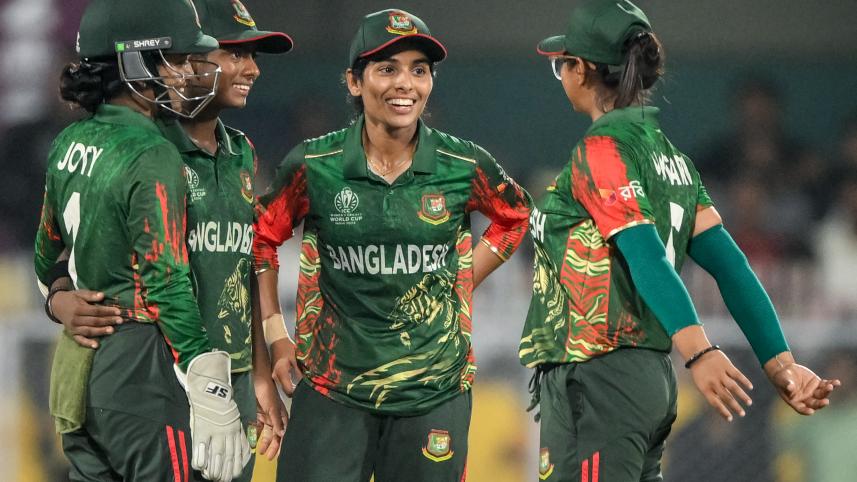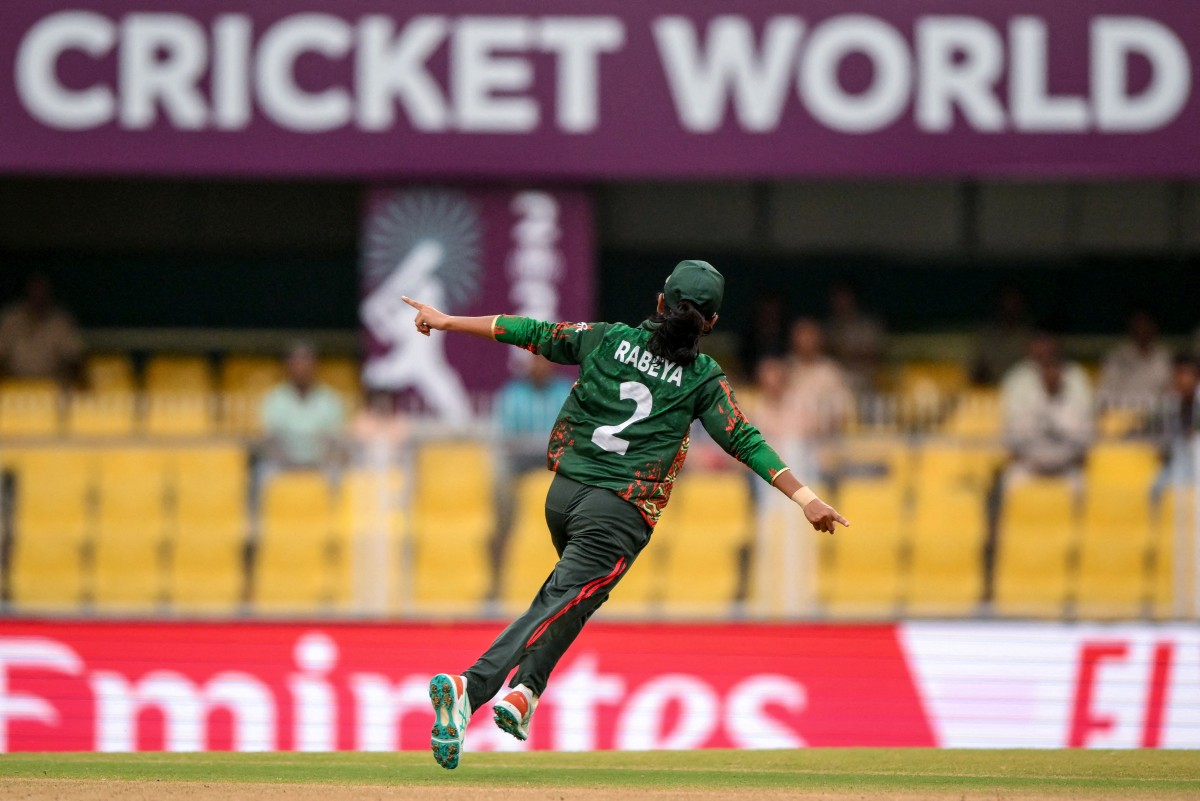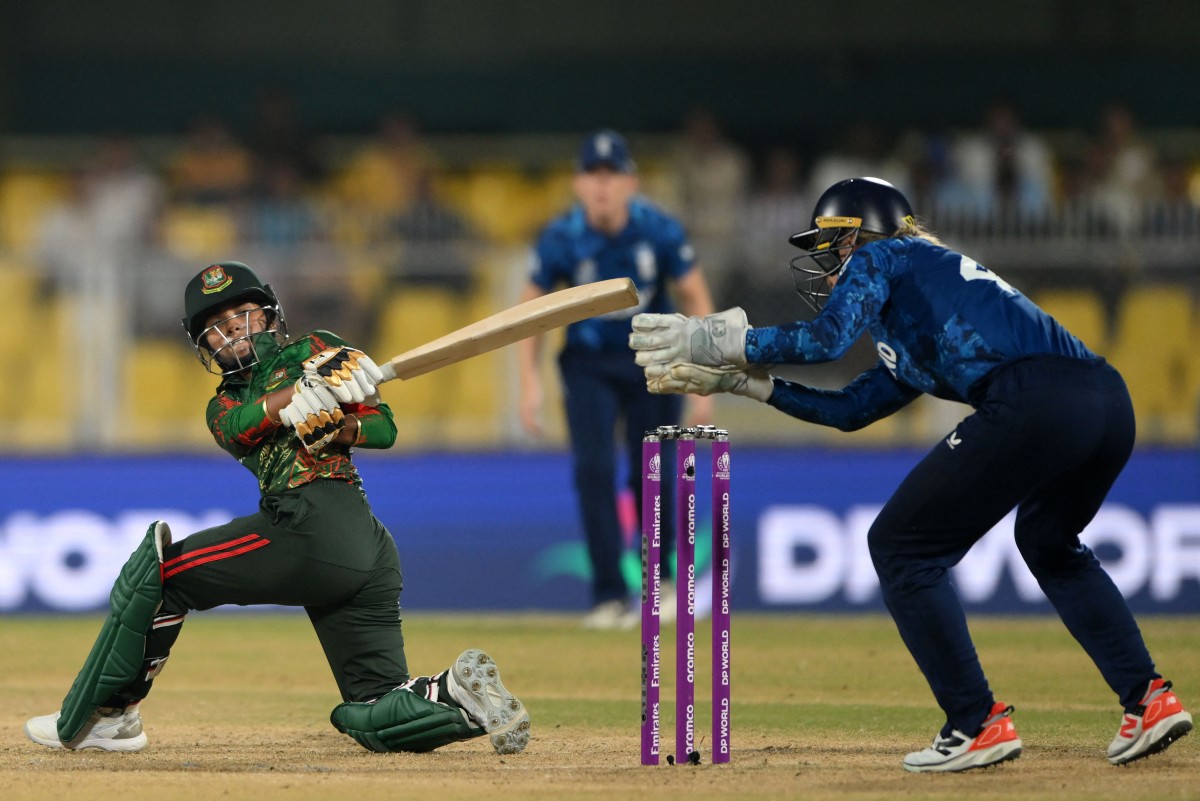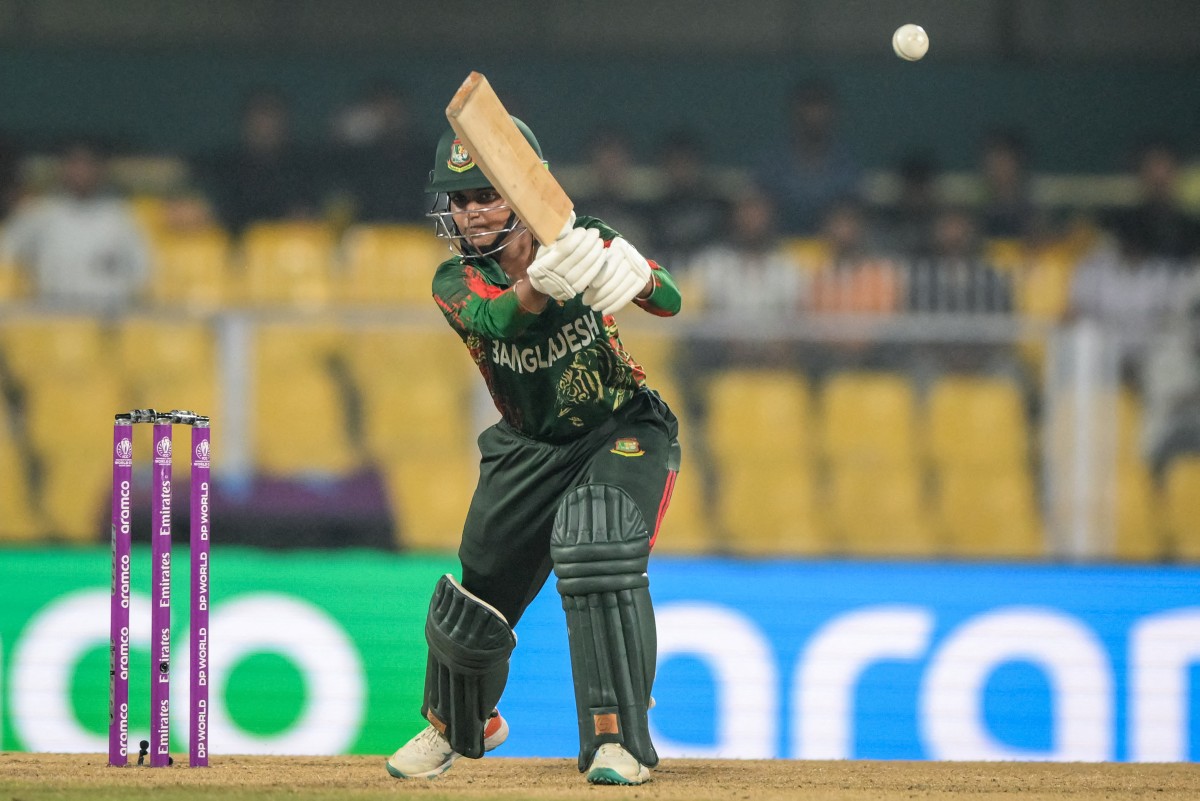Captain material Rabeya radiates girl power

On the eve of the International Day of the Girl Child, one of Bangladesh's younger talents sat before the press on Friday after another defeat for the Tigresses -- this time by 100 runs to New Zealand in Guwahati.
However, prior to it, they had already surpassed expectations in this tournament, beating Pakistan -- one of the two teams, alongside Sri Lanka, they had set sights on beating in the eight-team competition -- and pushing table-toppers England closer than anyone thought possible.
But when the post-match presser began, it wasn't the captain who showed up and spoke but a 20-year-old Rabeya Khan; as is often the case when the losing team resort to send their better performer of the day.
Rabeya had taken three wickets for 30 runs, including the stumping dismissals of opener Georgia Plimmer and Maddy Green and the deceptive carrom ball that got Amelia Kerr bowled out -- the latter destined for the highlights reel. She then added 25 off 39 balls, holding the tail together. Yet none of the questions or comments were about her performance.
Instead, journalists pressed her about Bangladesh's batting collapse. Rabeya answered with maturity; and in a way, she mirrored the girls in this part of the world who are often expected to grow up too soon, to shoulder the responsibilities of seniors, and to smile through a lack of recognition.
"If the top order doesn't score runs, whatever the lower order does becomes useless," she said. There was no defensiveness, no frustration in her voice or in the body language.
Then came a question about captain Nigar Sultana Joty's form. Rabeya defended her skipper without hesitation. "She is confident, but it's unfortunate that she's not yet among the runs," she said.
In that moment, she sounded less like a teenager and more like a leader – composed and already captain's material.

She comes from Barisal, from a home where cricket wasn't supposed to be a daughter's dream. Her father, Imdadul Haque Khan, a farmer, saw his daughter's spark long before others did.
"Her teachers encouraged her a lot," he once told BSS. "After she passed primary school, I enrolled her at the Basic Cricket Coaching Academy in Barisal. Later, she joined BKSP in seventh grade. She always loved sports. Seeing her play for Bangladesh makes all the hard days worth it."
That early faith carried her to a national camp at just 13 -- and an international debut a year later. At 14, in the 2019 South Asian Games in Pokhara, she took four wickets for eight runs against Nepal, earning the Player of the Match award. Three years later in Wellington, she made her ODI debut before breaking into the top 10 T20I bowler rankings last year.
This World Cup has witnessed a glimpse of the potential a prodigious talent holds. She took 1-13 against Pakistan, smashed 42 off 27 balls against England -- the 10th fastest ODI knock by a No. 9 -- and followed it up with another composed all-round display against New Zealand. As of Monday, she is one of the eight batters in the tournament with a strike rate over 100.

While fast bowler Marufa Akter has garnered global attention with her swing with the new ball, Rabeya has been Bangladesh's standout surprise package, given how her batting has been underrated. Her quick-scoring ability has made her indispensable for a team who haven't had the best of preparations in the World Cup lead-up.
"I give full credit to my father," Rabeya had said. "He worked incredibly hard to help me reach this far. He takes tremendous pride in my success… Those who used to speak ill now feel proud of me."
Even though the journalists in the press meet did not address her performance against New Zealand, Rabeya very well knows that her doubters-turned-admirers will feel prouder than ever before.
 For all latest news, follow The Daily Star's Google News channel.
For all latest news, follow The Daily Star's Google News channel. 
Comments